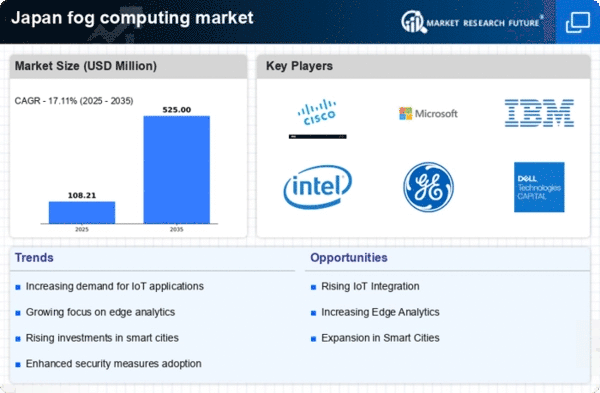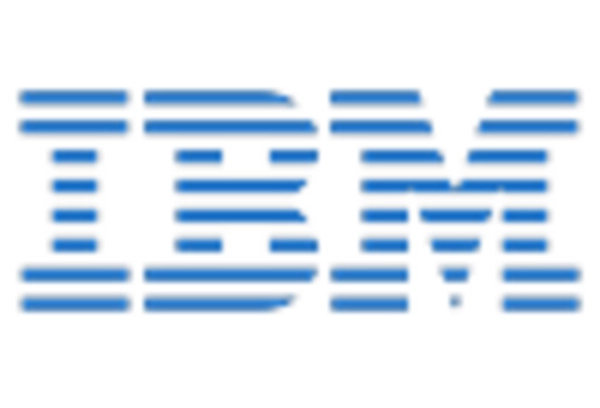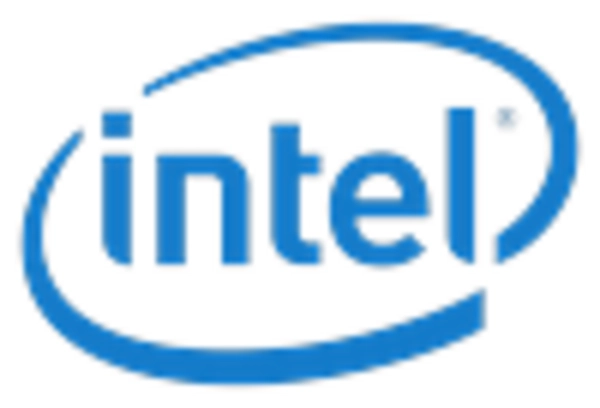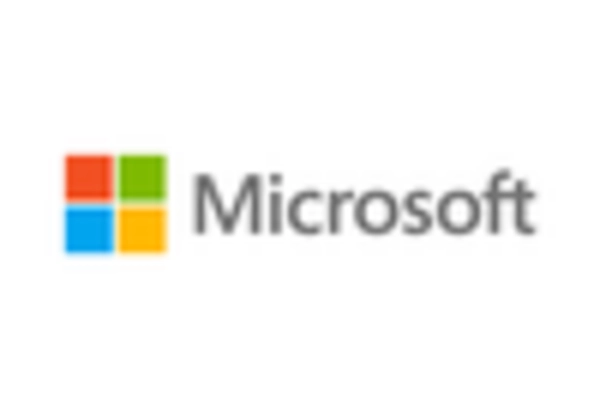Increased IoT Device Penetration
The proliferation of Internet of Things (IoT) devices in Japan is significantly influencing the fog computing market. With millions of connected devices generating vast amounts of data, there is a pressing need for efficient data processing and management solutions. Fog computing offers a decentralized approach, enabling data to be processed closer to the source, thereby reducing latency and improving response times. As of 2025, it is estimated that the number of IoT devices in Japan will exceed 1 billion, creating a substantial demand for fog computing solutions. This increase in IoT device penetration is likely to drive the fog computing market, as organizations seek to leverage real-time data insights for better decision-making and operational efficiency.
Government Initiatives and Support
Government initiatives in Japan are playing a crucial role in propelling the fog computing market forward. The Japanese government has been actively promoting digital transformation across various sectors, including healthcare, transportation, and smart cities. Initiatives such as the 'Society 5.0' strategy aim to integrate advanced technologies, including fog computing, to enhance societal well-being and economic growth. Financial support and incentives for research and development in fog computing technologies are also being provided, which encourages innovation and adoption. As a result, the fog computing market is likely to benefit from these supportive policies, fostering an environment conducive to growth and development. The government's commitment to advancing digital infrastructure is expected to further stimulate the fog computing market in Japan.
Advancements in Network Infrastructure
Advancements in network infrastructure in Japan are significantly impacting the fog computing market. The rollout of 5G technology is enhancing connectivity and enabling faster data transmission, which is essential for the effective implementation of fog computing solutions. With 5G networks, the ability to process data at the edge becomes more feasible, allowing for real-time analytics and decision-making. This technological evolution is expected to facilitate the growth of smart applications across various sectors, including transportation and healthcare. As network infrastructure continues to improve, the fog computing market is likely to expand, driven by the need for efficient data processing capabilities that can keep pace with the demands of modern applications.
Rising Demand for Edge Computing Solutions
The fog computing market in Japan is experiencing a notable surge in demand for edge computing solutions. This trend is driven by the increasing need for real-time data processing and analytics, particularly in sectors such as manufacturing and transportation. As industries seek to enhance operational efficiency, the integration of fog computing technologies allows for localized data processing, reducing latency and bandwidth usage. According to recent estimates, the market for edge computing solutions in Japan is projected to grow at a CAGR of approximately 25% over the next five years. This growth is indicative of the broader acceptance of fog computing technologies, which are essential for supporting the Internet of Things (IoT) and smart applications. Consequently, the rising demand for edge computing solutions is a significant driver for the fog computing market in Japan.
Growing Focus on Data Privacy and Compliance
In Japan, the growing emphasis on data privacy and regulatory compliance is emerging as a key driver for the fog computing market. With the implementation of stringent data protection laws, organizations are increasingly required to manage and process data in compliance with local regulations. Fog computing provides a viable solution by enabling data to be processed locally, thus minimizing the risk of data breaches and ensuring compliance with privacy laws. This focus on data privacy is particularly relevant in sectors such as finance and healthcare, where sensitive information is handled. As businesses prioritize data security and compliance, the fog computing market is likely to see increased adoption as organizations seek to implement solutions that align with regulatory requirements.
















